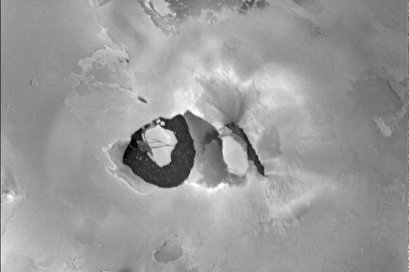 TEHRAN, Young Journalists Club(YJC)_Volcanic eruptions are quite difficult to predict on Earth, let alone a few hundred million miles away. But the lunar volcano Loki, or Loki Patera, erupts with surprisingly regularity -- like clockwork.
TEHRAN, Young Journalists Club(YJC)_Volcanic eruptions are quite difficult to predict on Earth, let alone a few hundred million miles away. But the lunar volcano Loki, or Loki Patera, erupts with surprisingly regularity -- like clockwork.
By studying the pattern of volcanic activity inside the massive crater, Rathbun was able to work out that Loki should erupt in mid-September.
"Loki is the largest and most powerful volcano on Io, so bright in the infrared that we can detect it using telescopes on the Earth," Rathbun said in a news release.
Because Loki brightens when it erupts, the timing of its volcanic activity can be calculated using archived observations of the moon. Rathbun and her research partners at the Planetary Science Institute studied more than 20 years of observations.
In the 1990s, Loki erupted roughly every 540 days. More recently, the Loki Patera has brightened every 475 days.
"If this behavior remains the same, Loki should erupt in September 2019," Rathbun said. "We correctly predicted that the last eruption would occur in May of 2018."
Rathbun presented her prediction of Loki's forthcoming eruption at the Division for Planetary Sciences of the American Astronomical Society's 51st annual meeting, held this week in Geneva, Switzerland.
"Volcanoes are so difficult to predict because they are so complicated," Rathbun said. "Many things influence volcanic eruptions, including the rate of magma supply, the composition of the magma -- particularly the presence of bubbles in the magma, the type of rock the volcano sits in, the fracture state of the rock, and many other issues."
Because Loki is so big, scientists suggest basic physics dominate its behavior, making it more predictable.
"The small complications that affect smaller volcanoes are likely to not affect Loki as much," Rathbun said. "However, you have to be careful because Loki is named after a trickster god and the volcano has not been known to behave itself. In the early 2000s, once the 540 day pattern was detected, Loki's behavior changed and did not exhibit periodic behavior again until about 2013."
source:upi